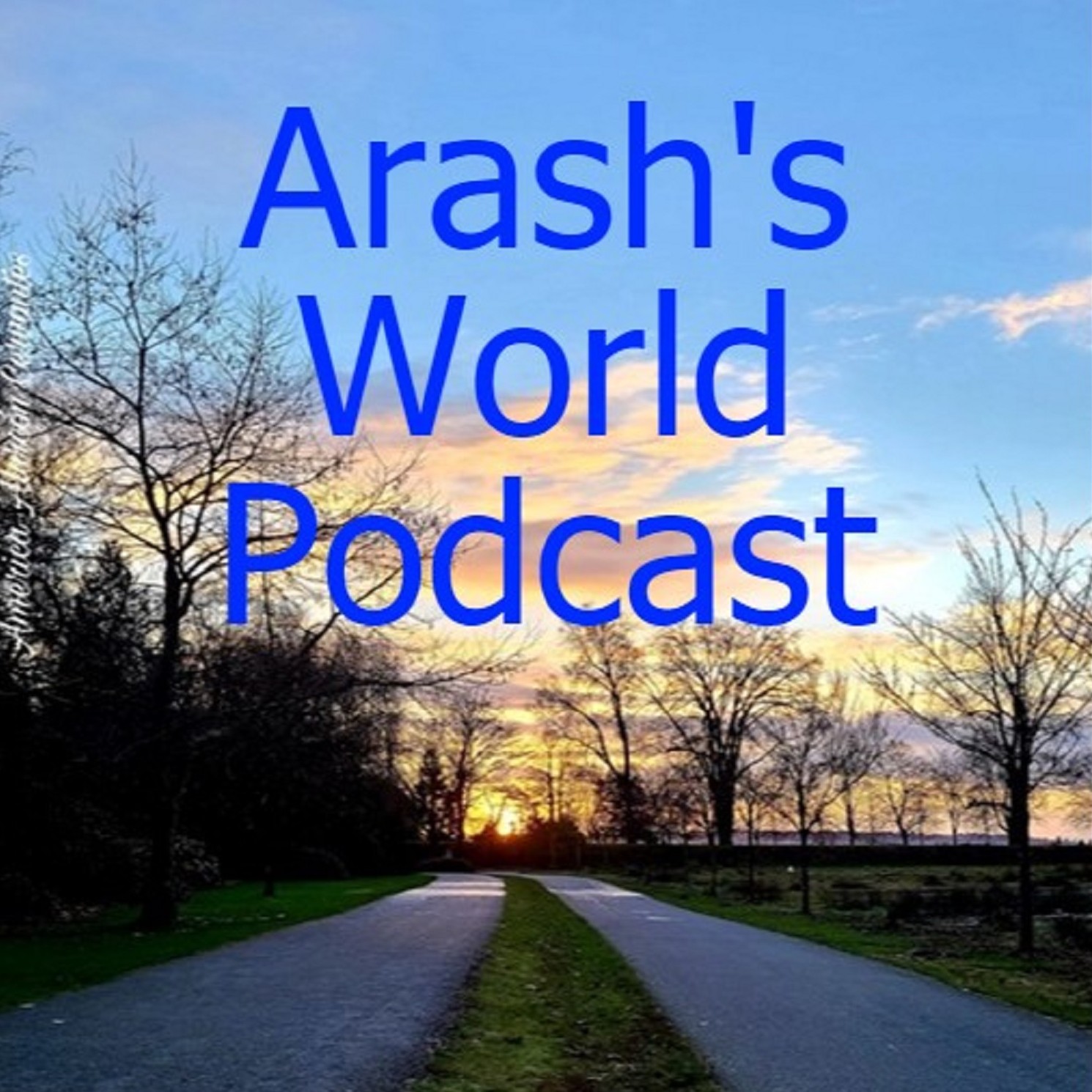
7.6K
Downloads
199
Episodes
This podcast is affiliated with the blog Arash's World dealing with existential issues and solutions in health and wellness, psychology, and philosophy. By providing reviews on books alongside exclusive, insightful & thought-provoking interviews with health & wellness experts, renowned psychologists & psychotherapists as well as global thought leaders and life coaches, we put together and forge individual holistic paths toward health, happiness, and wellbeing in your personal & professional life!
This podcast is affiliated with the blog Arash's World dealing with existential issues and solutions in health and wellness, psychology, and philosophy. By providing reviews on books alongside exclusive, insightful & thought-provoking interviews with health & wellness experts, renowned psychologists & psychotherapists as well as global thought leaders and life coaches, we put together and forge individual holistic paths toward health, happiness, and wellbeing in your personal & professional life!
Episodes
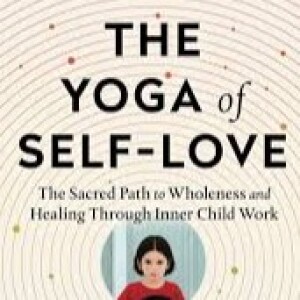
Wednesday Sep 25, 2024
Seeing Love and Shining Brightly with Ramaa Krishnan’s Yoga of Self-Love
Wednesday Sep 25, 2024
Wednesday Sep 25, 2024
In this episode, I have the great pleasure of speaking with Ramaa Krishnan, founder of “Full Bloomed Lotus Center for Self-Awareness” and author of “The Yoga of Self-Love: The Sacred Path to Wholeness and Healing through Inner-Child Work” on the different phases and aspects of healing and of loving ourselves in healthy ways and manners.
First off, we need to discover ourselves and truly see and connect with our essence and only then can we practice self-love, which is much more and much deeper than appreciating our strengths but rather accepting, embracing, and loving the entire package that is who we really are.
This is a life-long practice and both mindfulness and self-awareness are essential and vital for this. In that sense, love is not so much feeling but rather seeing ourselves and fostering and developing qualities that we have ignored or neglected in our lives. For this to occur, it is important to engage in inner child work.
This also entails facing difficult moments and addressing traumas of the past so that we can come out feeling better about ourselves and liberating ourselves from accumulated shame, blame, and guilt. As such, we can live a much happier life with stronger will, more intention, more trust, and one that opens up and is filled with self-love and love for all beings around us.

Sunday Sep 01, 2024
Sunday Sep 01, 2024
In this fascinating and enlightening episode, I have the great pleasure of speaking to Dr. Viktória Duda, Consciousness Researcher, Writer, Hypnotherapist, and Author of the book “Twenty-Five Centuries Without You” on consciousness and past lives.
As she explains, consciousness is the fundamental creative principle of life that is within and working through each individual sentient being. By studying and better understanding consciousness, we would not only overcome our fear of death but could also improve our own lives.
Each life can be perceived as a story with elements and themes often connected through what Stan Grof calls condensed experiences, which can help us resolve issues and problems in a given life, and in that process, we would elevate our own consciousness and the world around us.
Once we elevate our vibrations and frequencies and move away from the narrow and limited paradigm of materialism, we will find ourselves more in alignment with our true self and surroundings imbued with an overall sense of joy and happiness. In this higher state of consciousness, challenges are not seen as stumbling blocks but as temporary hurdles that can lead us to personal growth, resilience, and better outcomes for everyone involved.

Sunday Aug 11, 2024
Sunday Aug 11, 2024
In this episode, I have the great pleasure of talking to Conflict and Boundary Strategists and Authors of “Boundary Badass: A Powerful Method for Elevating Your Value and Relationships” Jan and Jillian Yuhas about the importance of having your voice heard and feeling valued both in your personal as well as professional relationships. Both at the workplace and home, it is important to not only set boundaries and communicate clearly and effectively but also deal with conflicts as soon as possible and in a way that does not lead to negative outcomes such as lingering feelings of resentment or alienation.
Often our lack of comfort with speaking up or setting boundaries has its root in our childhood stemming from experiences we had in the past where we may have felt that our opinions did not matter or were not valued or respected. But through self-awareness and self-regulation we have the opportunity to not only address these wounds and issues but to come out stronger and be able to attain better outcomes and results in our relationships.
As Jan and Jillian explain, their ASAP method is applicable to all types of relationships, and they can help us find common ground, build bridges, and lead to win-win situations for everyone involved. Such a shift from a "me mindset" to a "we mentality" with teamwork will pay dividends not only for employees, upper management, and CEOs but also for the company and corporation as it will boost motivation and satisfaction and increase productivity across the board.
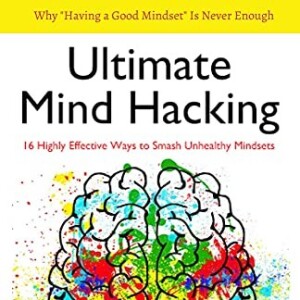
Tuesday Jul 09, 2024
Tuesday Jul 09, 2024
In this episode, I have the great pleasure of speaking with Entrepreneur and CEO of Rewiring the Mind and Mind Model Coach Blair Dunkley and author of Ultimate Mind Hacking: 16 Highly Effective Ways to Smash Unhealthy Mindsets. Blair talks about his successful and popular podcast and show The Blair Dunkley Experience and how his longstanding evidence-based research can not only help and effectively deal with different types of phobias, fears and anxieties but it can also lead to a more successful and happier life.
As he explains, mind models are much more than mindsets, beliefs or a state of mind; they are behavior-based and produce real-world results that are visible and observable by yourself and others and they put the power and control in your hands. This can be achieved with the three Es model, which show you whether your approach is effective or not by using a process of evaluation as opposed to judgment that are externally verifiable.
We also talk about the practice and effects of mindfulness and intuition and while we generally agree on both, there are slight variations in our understanding and practice of each of them. Yet Blair fully appreciates the potential power and positive effects of faith and prayer and how they can be externally verifiable by consistently and repeatedly producing states of calm and peace. Furthermore, Blair explains how we can choose our reactions and emotions to life events and that we can rewire our brain to experience less anxiety and more joy, happiness and success in our daily lives.

Friday Jul 05, 2024
Friday Jul 05, 2024
In this episode, I have the great pleasure of speaking with neurologist and headache specialist Dr. Mark Burish at the Will Erwin Headache Research Center. We talk about the rare but painful case of cluster headaches, which have certain commonalities with migraines but also demonstrate some vital differences.
For instance, cluster headaches go through cycles but unlike migraines, we are not aware of specific triggers except that smokers tend to be more likely to suffer from it whereas alcohol can be a potential factor. There are preventive measures and a range of treatments but there are still many unknown aspects to cluster headaches.
Although wellness initiatives, such as mindfulness or lifestyle changes reducing stress and anxiety tend to provide aid and relief for migraine sufferers, it is not as closely associated with improvement when it comes to cluster headaches. However, more research is needed and initiatives like Intermittent Fasting may potentially work as it can affect and change the circadian rhythm.
Finally, Dr. Burish talks about his background in neuroscience, how the brain does not have pain receptors as well as his decision to engage in this type of research, which includes helping and providing relief to patients suffering from chronic conditions like this one.

Tuesday Jun 18, 2024
Tuesday Jun 18, 2024
In this episode, I have the great pleasure of speaking with writer and journalist Wendy Lyons Sunshine about her book “Tender Paws: How Science-based Parenting Can Transform Our Relationship with Dogs” and how this can enrich our overall understanding of parenting.
Whether you are taking care of a child or a dog, there are different parenting styles that are applicable and certain methods that are preferred and recommended. Wendy explains the links and parallels while proposing and advocating the broad and holistic HEARTS approach, principles and goals that are helpful for and beneficial to the raising of both children and dogs.
At the same time, it reinforces that these sentient beings are unique in their personality traits as well as their needs, desires, and wishes. It is important to be responsive to them and yet to leave some space for them to figure things out on their own and have time to be themselves while playing, learning, and exploring freely.
As we are guiding and leading them, it is a great chance not only to break old harmful patterns, upgrade our skills and heal ourselves from negative experiences rooted in our own respective childhood but also to be able to pause and start anew as we try our best and keep learning with and growing from each new challenge and opportunity in the parental realm, be it human or canine.
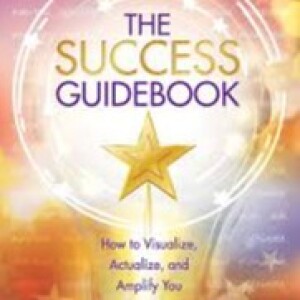
Wednesday Jun 12, 2024
Wednesday Jun 12, 2024
In this episode, I have the great pleasure of speaking with Master Life Coach, Author, and Speaker Elizabeth Hamilton-Guarino on her book “The Success Guidebook: How to Visualize, Actualize, and Amplify You.”
Elizabeth challenges us to rethink and redefine what success means and to do so individually and not on a cookie-cutter basis (this coming from a chocolate chip cookie connoisseur!). It is important to first figure out what your passion is clues of which may be present during our childhood and then formulate it in clear and concrete terms both to yourself and others.
As she explains, it is best to not compare yourself with others but rather visualize what you would like to achieve. Although there may be physical limitations, there are no age limits on what you can do as long as you can see it, be it, and then follow through by doing it.
At the same time, it is essential to have a positive outlook even (or especially) during hard and difficult times but also to surround oneself with positive people who understand and fully support you alongside your wishes and desires. In fact, as Elizabeth illustrates, often the desire to change and grow comes from initially feeling stuck and being at an impasse in life.
Yet by taking the step-by-step process toward comprehensive success as you visualize, actualize and then amplify this unique path of yours, you can start celebrating the smaller wins as you aim and reach toward the bigger ones. And at all times, it is important to keep your positivity intact, be surrounded by loving and caring people, and be grateful for what you have instead of worrying and fretting over that which you do not have (yet).
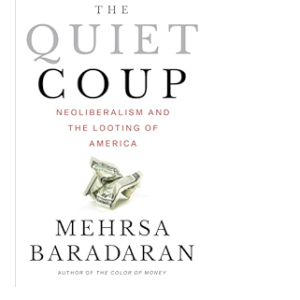
Wednesday May 22, 2024
Wednesday May 22, 2024
In this episode, I have the great pleasure of speaking with law professor Mehrsa Baradaran, the author of “The Quiet Coup: Neoliberalism and the Looting of America” on how neoliberalism was gradually and surreptitiously incorporated and implemented into law for economic and political purposes.
Mehrsa details that during the 1960s, there was a significant and pivotal global shift in terms of freedom and human and civil rights, international law, and the sovereignty of nations, and that is when neoliberalism gained its foothold not only in American policy but across the world.
This ideology made itself known at that time as an antidote and protection against communism and was touted as a free-market policy that would decrease laws and government intervention, but it ended up creating more laws and regulations to benefit its own agenda.
As Mehrsa explains this profit-driven ideology operates on double standards, is algorithmic in nature and has infiltrated laws and policies in the form of a quiet coup, which has been propagated by both sides of the political spectrum.
Furthermore, we discuss how this has the potential to lead to totalitarian and fascist regimes and that we need to be aware that evil exists in its “banality” as Hannah Arendt noted, namely as common forms of blindness and ignorance among the people and citizens.
People are frustrated with the rampant corruption and hypocrisy, and are hence distrusting of governments, institutions, and corporations as the game is rigged and tilted in the favor of the wealthiest.
In a sense, we are at a crucial and pivotal point in history as events around the tumultuous 60s are reoccurring and are being mirrored but this time around we have the chance and potential of solving the issues together and attaining true and lasting democracy for everyone by investing in human genius and giving it free reign.
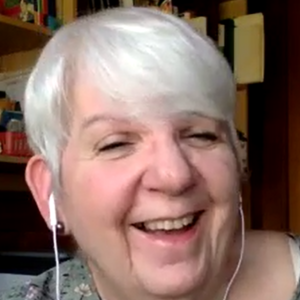
Saturday May 11, 2024
Saturday May 11, 2024
In this episode, I have the pleasure of speaking with spiritual healer and coach Sheila Winter Wallace about the importance of body awareness and the focus on the breath to deal with and overcome physical and emotional pain and blockages in our mind and body.
Over the years, Sheila has worked predominantly with women, most of whom are successful but do not think they are as they tend to feel burdened and weighed down by an unhealthy and unrealistic drive for perfection as well as the impostor syndrome.
Sheila points out that we often need to define states and concepts for ourselves to be able to discover our uniqueness and where we excel most. A shift in mind and perspective can help us see things more clearly, while curiosity can be our anchor and driving force throughout our life's journey.
Finally, she gives examples of Hawaii and some of their chants, which focus on each of us having powerful spiritual forces that make us whole, unique, and essential to our world. By drawing parallels to quantum field theory, we may better understand that nothing is good or bad, right or wrong in and of itself, and that our aim and goal should be to connect with our spiritual force within and to create the life we want and wish for.
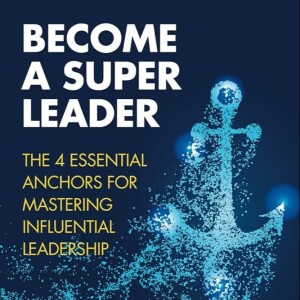
Tuesday Apr 30, 2024
Tuesday Apr 30, 2024
In this episode, I have the great opportunity of speaking with author, entrepreneur, and strategic consultant Gary Laney about his book “Become a Super Leader: The 4 Essential Anchors for Mastering Influential Leadership” as well as his own personal and professional experience regarding leadership.
Successful leadership goes beyond making one’s business function well or making it good and reputable in the eyes of the world, but an important, necessary, and crucial aspect is relationships with one’s staff and employees, clients, and community. Moreover, it is interesting to note that you are not just born a leader, but it is a skill that can be taught, learned, practiced, and improved upon.
Gary shares how Benjamin Franklin’s quest and work on 13 virtues influenced and inspired him to consider and look at 40 competencies that make a good and effective leader based on surveys of various successful business leaders around the world. These different skillsets can make you tap into and become your best version in the business field and perhaps even turn you into a polymath like Franklin himself.
Moreover, a super leader wears many hats and has access to a wealth of knowledge and experience that they can put on and take on at any given moment. Although we may not be multitaskers, we can do, focus, and improve upon various things one at a time. Yet, an important question to ask yourself is what your superpower and your legacy are, and we may start asking ourselves this question at a young age so that we can activate, realize and even go beyond our inherent potential.
